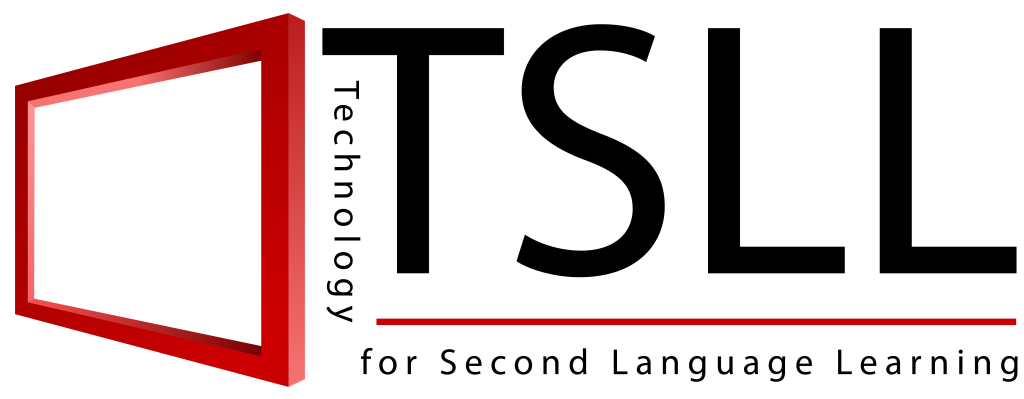
Call for Papers
Due to the high number of requests, the abstract submission deadline was extended to April 30, 2019
Technology for Second Language Learning Conference
Iowa State University
Conference Theme: Technology-Mediated Task-Based Language Teaching
Task-based language teaching (TBLT) is an approach to language education intended to prepare students for language use beyond the classroom by providing them with opportunities to perform carefully designed learning tasks simulating real-world tasks. Task design is informed by hypotheses about learning and analysis of the language, topics, and genres of communication that students will need beyond the classroom. Pedagogic tasks are sequenced according to their performance demands to prepare learners for participation in communication tasks outside the classroom. With design and sequencing of tasks as central to the approach, much attention has been devoted to discovering the effects of particular task-internal and task-external characteristics on performance and learning. Such research has been instrumental in bridging the historical divide between theory and practice in second language acquisition by drawing on theory and research to hypothesize and test the effects of particular performance conditions operationalized as pedagogic tasks. Historically, research on task-based language learning largely concentrated on tasks carried out through face-to-face interaction in the classroom. Today, technology mediates many pedagogic and real-world communication tasks, creating the need to better understand the implications of technology for TBLT.
The 17th Annual Technology for Second Language Learning Conference at Iowa State University will explore the role of technology in TBLT. Technology-mediation describes the full range of communication and learning tasks that learners engage in through the use of interactive multimedia, communication technologies, internet-based collaborations, virtual worlds and social media. The affordances of multimodal tools for communication and learning expand the potential task characteristics in ways that have implications for language performance and learning. The growing range of options for task design prompts engagement with second language acquisition theory and research. Proposals are invited for papers that present on any aspect of theory, research and practice of Technology-Mediated TBLT.
For more information about the conference topic:
Bygate, M., Norris, J., & van den Branden, K. (2015). Task‐Based Language Teaching. In C. A. Chapelle, The encyclopedia of applied linguistics. Oxford: Wiley-Blackwell.
González-Lloret, M., & Ortega, L. (2014). Towards technology-mediated TBLT: An introduction. In M. González-Lloret & L. Ortega (Eds.), Technology-mediated TBLT: Researching technology and tasks (pp. 1–22). Amsterdam, Netherlands: John Benjamins Publishing Company.
Invitation for Submission of Abstracts
We invite abstract submissions from prospective presenters wishing to contribute to the program with a paper or poster on the implications of technology for pedagogic and real-world tasks for all levels of second/foreign language learning. Examples of topic areas include but are not limited to the following:
- Needs analysis taking into account the technological and linguistic demands of students’ language use
- Use of technological task features to implement theorized positive qualities (e.g., focus on form, noticing, negotiation of meaning, scaffolding, feedback)
- Evaluation concepts for investigating the use of Technology-Mediated TBLT (e.g., design-based research, theory of action)
- Learners’ perspectives in the study of Technology-Mediated TBLT
- Theoretical perspectives on communication, interaction, participation, and learning that are useful for research and practice in Technology-Mediated TBLT
- Development and evaluation of Technology-Mediated TBLT as a site for assessment of interactional competence
- Issues in developing criterion assessments of performance and learning (e.g., linguistic features, interactional moves, or task accomplishment) in Technology-Mediated TBLT
- Implications of a Technology-mediated syllabus or curriculum for assessment
- Studies of task types in Technology-mediated TBLT curriculum design
Types of Presentations
- Papers: Theory-oriented presentations or reports on completed research related to the theme of the conference. The presenter will have 20 minutes to present, followed by 10 minutes for questions and comments.
- Posters: Presentations of work in progress and research at the planning phase. All poster presenters will give a 5-minute introduction of their study to the whole audience, and will then host their posters for the rest of the session. This is a great opportunity for graduate students to discuss their research plans.
Evaluations of Proposals
Proposals will be evaluated based on their
- Contribution to theory and practice in Technology-Mediated TBLT
- Relevance to the theme of the conference
- Importance of the types of task(s) targeted
- Quality of the abstract in terms of coherence, organization and prospects for a good presentation
Prospective presenters should make their abstract submissions by April 22, 2019 here. Submissions for individual papers and posters should include the presenter’s name, contact information, co-presenter’s name(s), institutional affiliation, type of presentation, title of proposal and a 250-word abstract. Acceptances will be sent by May 31.